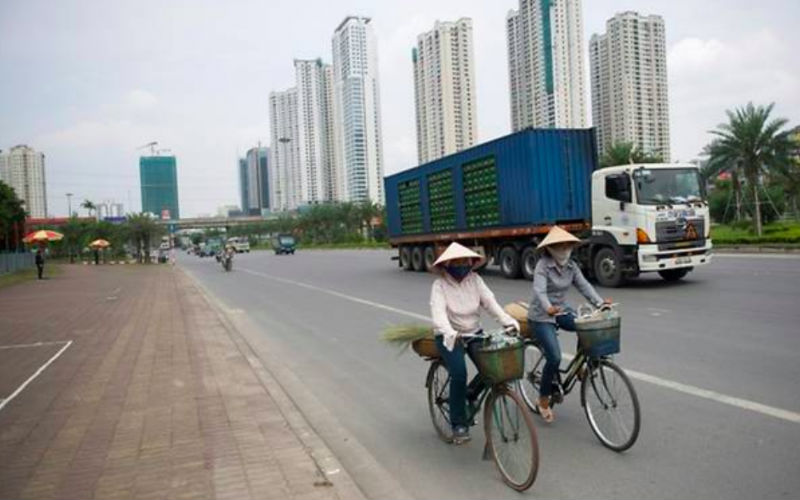KUALA LUMPUR: Prolonged lockdowns and social distancing measures are forecast to cap global gross domestic product (GDP) growth this year, making it unlikely that a return to pre-Covid-19 economic growth and trade activity will take place before late 2021.
In Southeast Asia, growth will likely be constrained by social distancing measures, but restrictions will continue to be eased next year, especially in economies that are able to roll out vaccines relatively quickly, the Institute of Chartered Accountants in England and Wales (ICAEW) said today.
“While uncertainties remain, and most economies will take time to recoup lost output, risks have become more balanced with recent positive news on vaccines and regional growth prospects for Southeast Asia in the medium to long term are optimistic,” it said in a statement here, today.
To recap, the latest economic outlook report from Oxford Economics, commissioned by ICAEW, predicted that GDP across Southeast Asia will contract by 4.1% in 2020 before a sharp rebound to 6.2% in 2021.
The report found that an economic rebound in 2021 remains contingent on the easing of lockdown restrictions, global recovery momentum and the successful rollout of coronavirus vaccines.
As such, progress on vaccination will be an important barometer for growth in 2021, with services likely to catch up faster in economies that are better placed with regards to vaccine procurement and distribution.
The Malaysian economy, it said, had experienced a V-shape recovery early on but the extension and widening of areas under the conditional movement control order (CMCO) will put a strain on economic activity in the short-term, leading to a double-dip in recovery.
“However, the government has announced a highly expansionary budget for 2021, with an increased focus on infrastructure investment. This will support a solid rebound in economic growth to 6.2% next year, after a 5.6% contraction this year.”
In Indonesia, the pace of recovery is still uncertain, driven primarily by weak mobility trends, a double-digit slip in imports and weakening momentum in retail sales.
The pandemic is expected to leave permanent scars on GDP levels, and it is forecast to contract by 2.2% this year before rebounding to 6% in 2021, with the help of consumer spending and infrastructure, said ICAEW.
Countries, which have been successful in controlling the pandemic like Vietnam and Singapore, have led the region in recovery, it said.
“Indeed, Vietnam is predicted to be the only economy to record positive growth this year at 2.3%. Thailand also had early success in stemming the tide of Covid-19 infections. However, travel restrictions have hit its economy hard as the sector accounts for 20% of its GDP.”
The Thai economy is expected to continue to recover but at a gradual pace, assuming that public spending does more of the heavy lifting to support the recovery over the rest of the year into 2021.
On the other end of the spectrum, the Philippines has suffered strict and extended lockdowns and its fiscal response has been meagre.
As such, the Philippines’ GDP is expected to plunge by nearly 10% in 2020, although it is likely to see a growth of 7.8% in 2021, given the gradual easing of restrictions.
“The biggest concern for Southeast Asian economies is keeping additional waves of infection at bay while gradually bringing social and economic activities back to speed,” said Mark Billington, ICAEW regional director, Greater China and Southeast Asia.
“The interconnectedness of the global economy means that countries will have to work collectively to strengthen their pandemic response plans and address the dual challenges of resuming business activities while keeping their people safe.”
Despite the predictions of an economic rebound in 2021, major uncertainties which could affect post-pandemic recovery remain, such as slow progress in the roll-out of mass vaccination programmes, a global second wave resulting in another global lockdown, and a financial crisis leading to major economic damage.
Optimistically, vaccine breakthroughs and post-election US stimulus could also speed up near-term recovery and avoid long-term damage, it added.
CLICK HERE FOR OUR LIVE UPDATE OF THE COVID-19 SITUATION IN MALAYSIA

